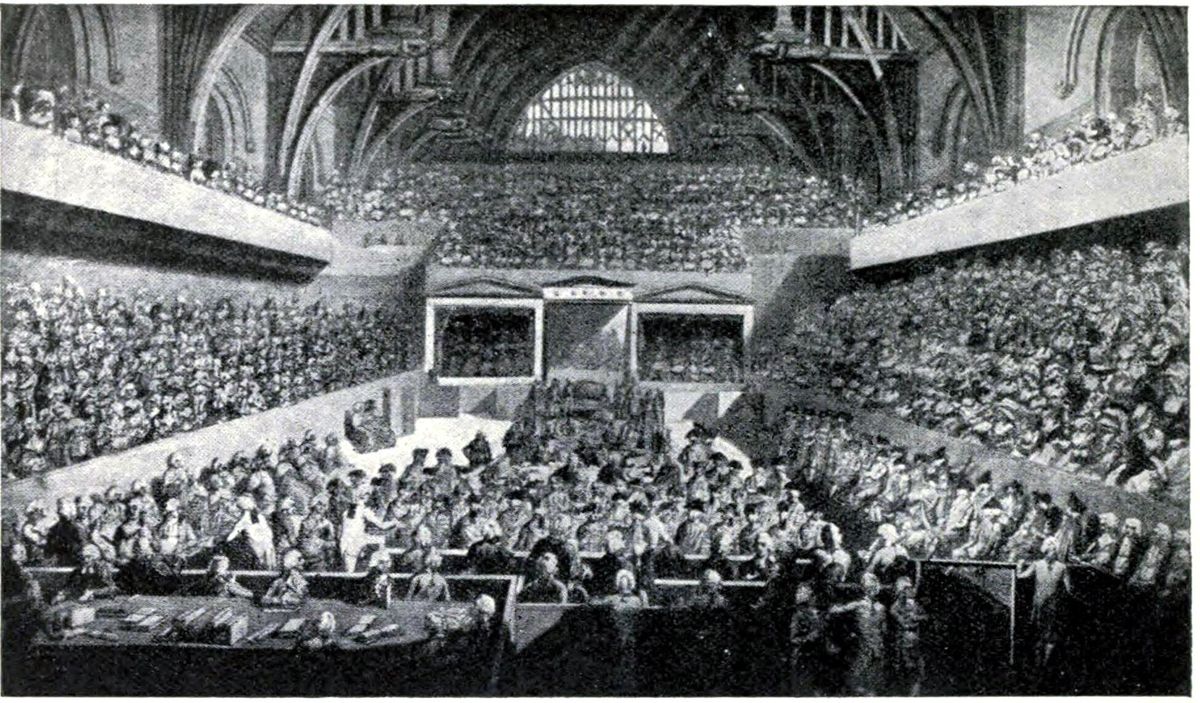Reclaiming Constitutional Thinking: William Selinger's Parliamentarism

There have only been five presidential elections in the history of the United States in which the winner of the electoral college did not win the popular vote. Two of the five, the only ones which did not occur in the 19th century, were the most recent Republican presidents; one, George W. Bush, under infamously contentious conditions, and the other, our current president, who received some 2.9 million fewer total votes than his opponent. As a result, the electoral college has entered the ranks of topics on which party affiliation predictions position, with Democrats favoring its abolition and the Republicans defending its provenance.
We Americans would do well to get a little perspective from history and from outside our own context. William Selinger’s fascinating book, Parliamentarism: From Burke to Weber is a great place to start. It is a book which makes it difficult to take seriously those “traditionalists” who cite Edmund Burke or speak of political artifacts such as the electoral college as though they are sacrosanct. The salient facts of the English constitution in Burke’s day were quite recent developments and still in play. He was an important player himself, both through his decades-long career in the House of Commons, and as a titan of parliamentary theory who would set the terms of debate for a generation. Here in America, the founding fathers were very much kindred spirits. Their institutional experimentation was far more radical, but it did not begin or end with the document signed in 1789. To act as though honoring these figures requires freezing the institutions they left us in place is ignorant at best. Were they alive today, they might not want to abolish the electoral college, but they would without a doubt be monkeying around with our institutions.
Which is not to say that the best course is simply to abolish the electoral college and leave it at that. The final chapter of Selinger’s book discusses how the parliamentary theorists were swept aside by the tide of mass democracy at the turn of the 20th century. The democratic theorists that replaced them are big on thought experiments and thinking through the moral grounding of true democracy, but not big on institutional or procedural details.
Say we did abolish the electoral college, what then? We would still have a powerful executive with a wide popular base (indeed, even more so in this scenario). Is that truly where we ought to leave things? John Stuart Mill and the other Victorian parliamentarians saw that the problem with America’s presidency was not in the electoral college system but in the weakness of Congress, when compared to the supremacy of the House of Commons. Mill’s commentary is more relevant today than ever:
[T]here ought not to be any possibility of that deadlock in politics, which would ensure on a quarrel breaking out between a president and an assembly, neither of whom, during an interval which might amount to years, would have any legal means of ridding itself of the other.
The English constitution avoided this by making the King’s ministers accountable to the House of Commons, and by giving the executive the power to call new elections. Mill emphasized this as well, but the theorist who first made it central to parliamentarism was Germaine de Staël, center of the Coppet Circle of intellectuals in Switzerland during the French Revolution. Looming large in the mind of theorists of this period was the failure of France’s Constitution of 1791, which fell apart after repeated use of the royal veto led to an outbreak of violence and, ultimately, the Reign of Terror. De Staël suggested an institutional arrangement in which the executive (a committee rather than a monarch in this case) was constitutionally subordinate to the legislature, but had the ability to call a new election—a tactic that would only work if popular opinion favored them over the current legislators.
De Staël argued not only that the executive committee’s ministers should resign when opposed by the legislature but that in such a circumstance, the committee itself should resign as well. This would ensure that “there never arrives something which cannot reasonably exist: a supreme authority executing a decision it reproves.” The executive’s other option was to dissolve the legislature and call an election. “In a free government,” according to de Staël, “public opinion in all its force can alone force one of the powers to cede to the other, if by misfortune they differ.” By dissolving the legislature, the executive committee was gambling that public opinion was on their side. If a legislature friendlier to their position was elected, they could stay in office—but should the electorate return a legislature still at odds with them, they would have no choice but to resign.
Like the other parliamentarians examined in the book, de Staël thinks carefully about how to offer each side a mechanism, with teeth, that nevertheless won’t threaten to throw the entire enterprise off balance. In this case, the executive is subordinated, but can fight back largely by holding parliament accountable to public opinion. For other thinkers, such as Benjamin Constant, a monarch who “rules but does not govern” subverts unhealthy status competitions by occupying a position at the top which no one else can reach, channeling ambition into the healthier competition for ministry positions. In each case, the thinker carefully mapped out the faultlines of the system as a whole and sought to address each in ways that did not put pressure on the others.
In our own country, we are afforded only rare opportunities to amend our written Constitution. Should we liberals find ourselves with such an opportunity and choose to abolish the electoral college, thinking it will change much of substance, it would be a tremendous waste and certain disappointment. We could do worse than turning to Selinger’s book to observe, without the baggage of our own history, numerous examples of how to think seriously about a political system as a whole, and how best to improve it.
Featured image is The Trial of Warren Hastings, 1788




